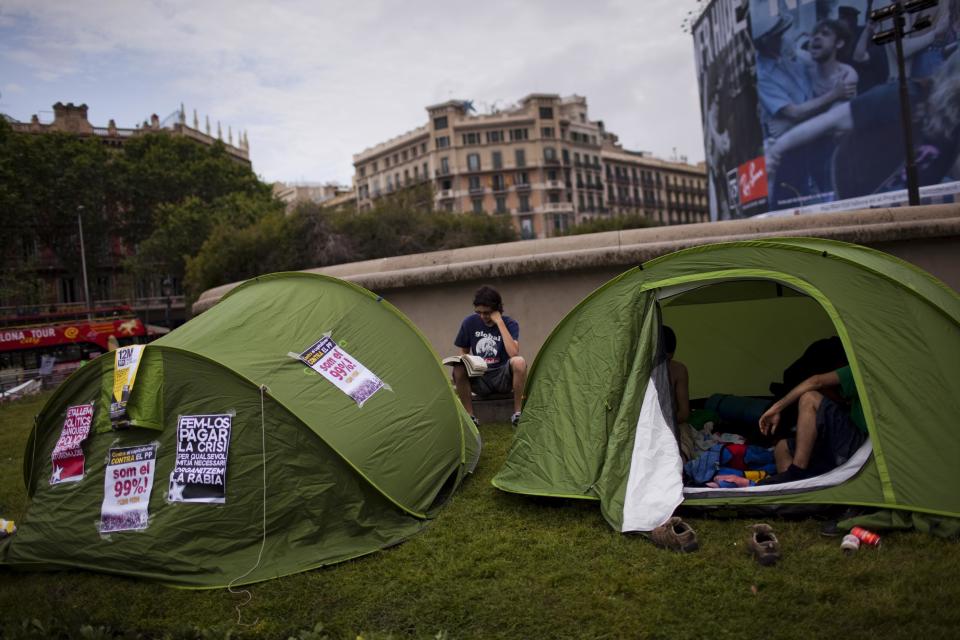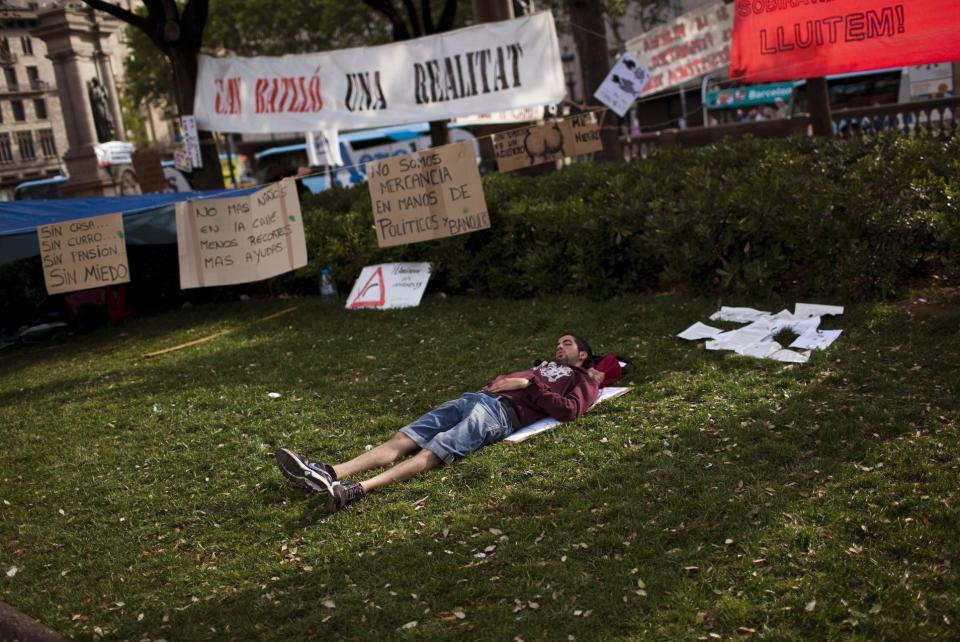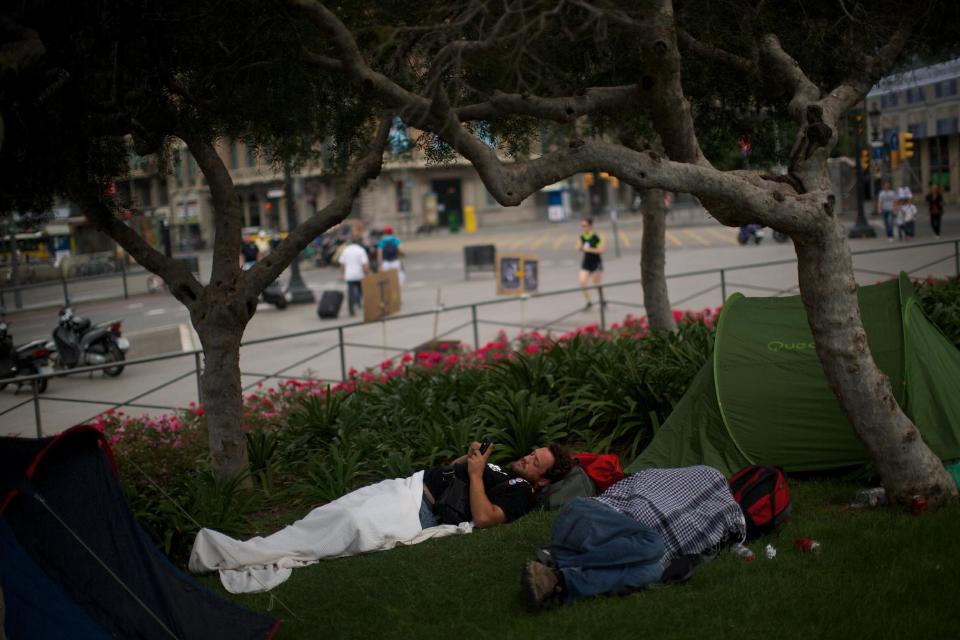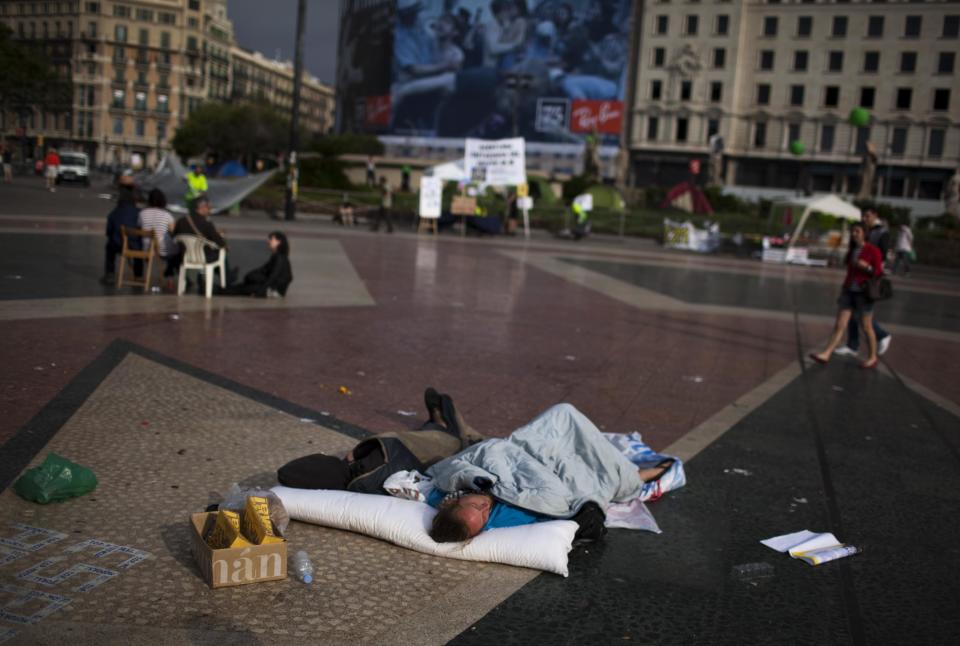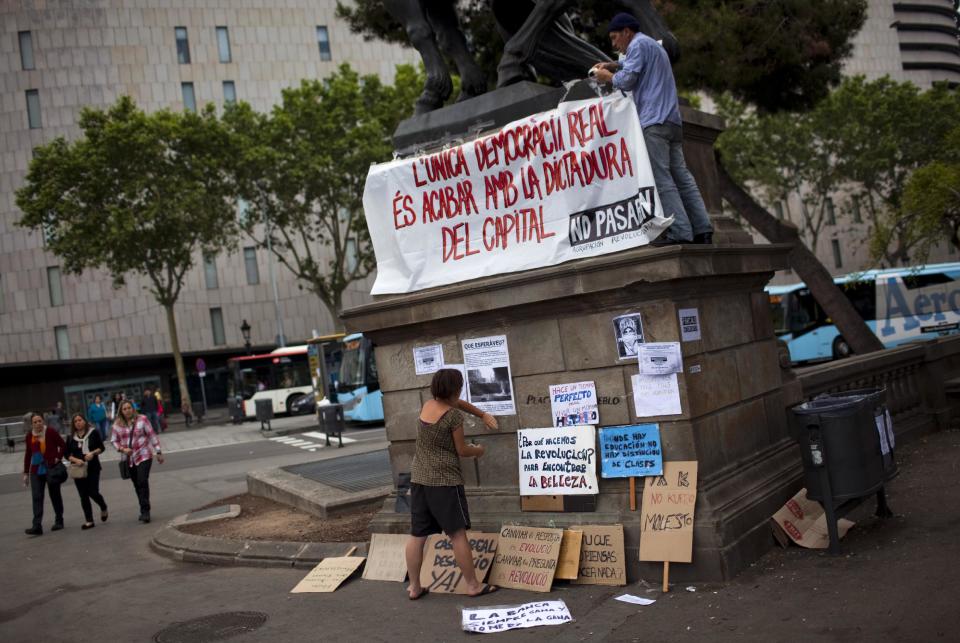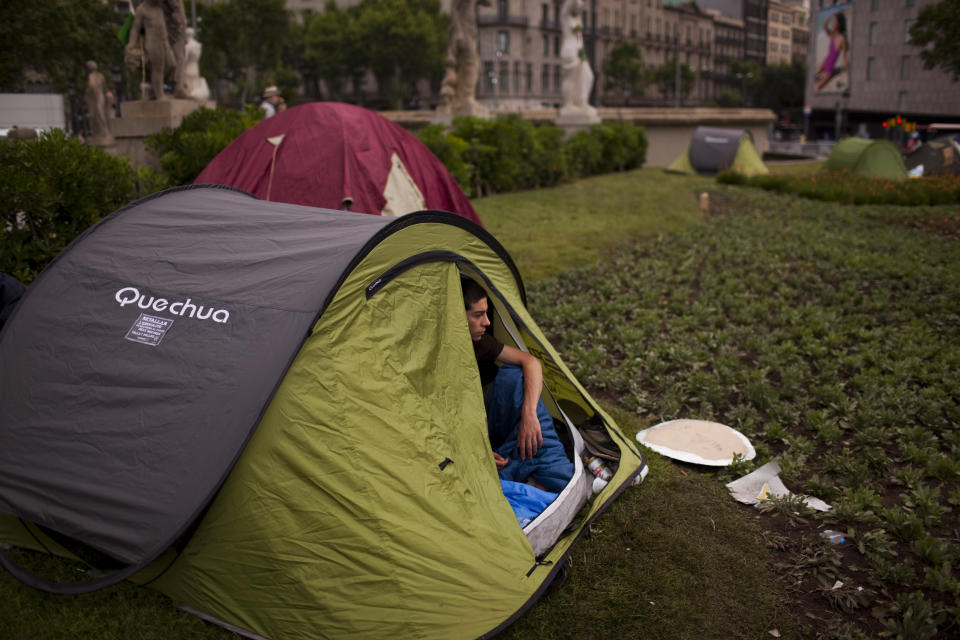Spanish PM defends cuts day after massive protests
MADRID (AP) — Prime Minister Mariano Rajoy on Sunday defended his government's harsh austerity measures aimed at correcting Spain's grim economic forecast, one day after tens of thousands of Spaniards took to the streets to protest his handling of the country's worst crisis in decades.
Rajoy said the measures are "necessary" given Spain's dire situation, which includes a staggering unemployment rate of almost 25 percent.
"We are doing what is needed and that means taking difficult decisions," said Rajoy. "We are doing things that were not in our campaign platform, but we have to do them. "There are decisions that we don't like, but I can tell you that we will continue to take the decisions necessary to see Spain through this situation."
The government's cuts brought waves of Spaniards out on the streets of various cities Saturday to mark the one-year anniversary of the birth of the "Indignant Movement" — a spontaneous movement that inspired similar anti-authority demonstrations around the world.
A total of 72,000 people protested across Spain, according to the police, with 30,000 in Barcelona and 22,000 in Madrid.
On Sunday, police said they arrested 18 protesters who spent all night in the Spanish capital's Puerta del Sol area, clamoring for an end to what they consider to be hardline measures by the government.
A police spokeswoman, speaking under customary condition of anonymity due to police policy, told The Associated Press that two officers were injured early Sunday morning in Madrid when they tried to evict hundreds of protesters from the large public square. Local media have reported that they were not seriously hurt.
"The night passed without major incidents. The square is completely cleared," the spokeswoman said.
Spanish media reported that police also evicted protesters early Sunday morning from public spaces in other cities, including Valencia, Zaragoza, Cadiz and Palma de Mallorca.
Protests are expected to continue until Tuesday.
Last year similar demonstrations beginning May 15 led to "indignant" Spaniards establishing camps in squares in cities such as Madrid and Barcelona that stood for weeks.
Authorities want to avoid a repeat of those tent cities. Madrid has established a curfew in the Puerta del Sol from midnight to 10:00 a.m.
Spain has entered a recession for the second time since the global economic downturn, and its unemployment rate is the highest among the 17 countries using the euro.
Hammered by surging interest rates on government bonds, Rajoy's conservative government has introduced a series of cuts to social services, health and education since taking power this year.
On Friday, the government told Spanish banks that they must allocate another euro30 billion ($40 billion) to cover potential losses on toxic real estate holdings and ordered an independent audit of their debt in an effort to restore confidence in the nation's beleaguered banking sector.
"This is about solving this situation for once and all," Rajoy said Sunday. "This is about erasing all the doubts regarding our banking sector. We are doing what should have been done four years ago and wasn't done."
___
Wilson reported from Barcelona.

